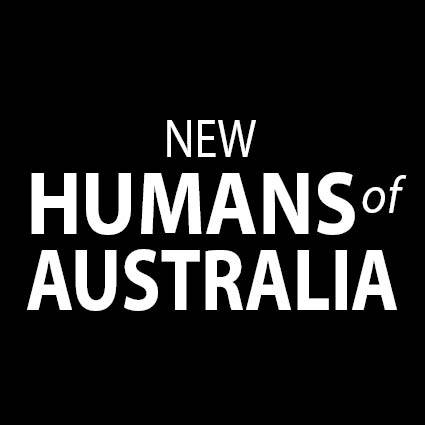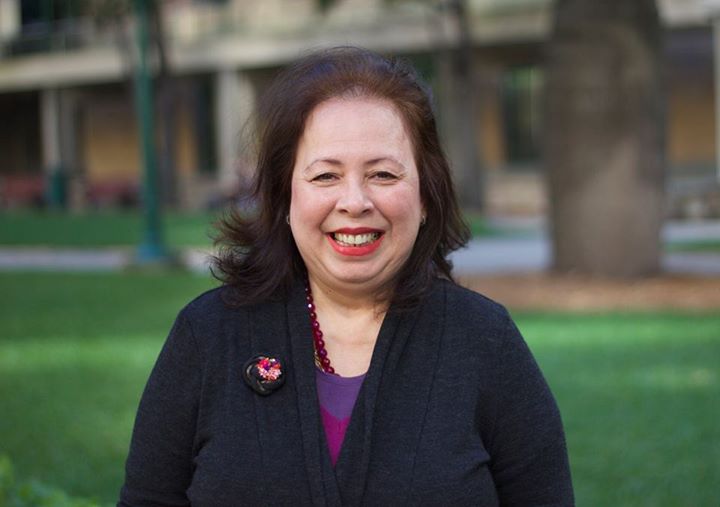In early 1975, there was still very little bombing in Saigon. Although my father was a well known politician, I was protected from the realities of the war, as my parents always kept us wrapped in cotton wool – I was 18 years old, and preparing to go to France to go to university. Then one day, we were told we were going to stay at the coast with my grandparents while our parents stayed in town. My father said to me, ‘Every day, when you swim at the beach, just use the binoculars and see if the American war ships are still there, and then tell your uncle.’ So I did that, but I didn’t know why.
Then, one night, when we were preparing to go to sleep, my uncle called us and took us to the docks, and we took turns to go from a little boat to a big fishing boat, which he had rented. We were all really seasick, and I was very scared because my parents weren’t there. For the next 2 days, the captain was trying to follow a trail of plastic cups in the water, because he thought it would lead us to the American ships, but we didn’t find them, so we decided to go back. When we got back to the beach, I saw Communist soldiers, which scared me because I didn’t know what had happened to my parents. But soon after, they made contact with my uncle.
The next time, my father and uncle bought a boat using my family’s gold and jewellery. The only map we had was a high school map, so my father said, ‘Let’s just follow the coast. In case something happens – we can go and get help.’ But after 2 or 3 days, water got in the motor, so we had to dock at night time. Just after we docked, the Communists arrived with a truckload of soldiers. They separated the men and women, searched everyone, and took all our money and jewellery. Then they found a photo of my father studying in the US, so they said he was a spy and took him away to a hard labour camp. We were imprisoned on the boat for 8 weeks – someone with a gun was always watching over us. After that, we lied and said we were going back home, so they allowed us to leave. Before we left, I went to visit my father in the camp, but I wasn’t allowed to hug him. I just said goodbye, and left.
After 3 more days of being seasick, we saw a boatload of Thai fishermen. The men on our boat said, ‘Girls, go down into the bottom of the boat and rub your faces with dirt and hide.’ But luckily those fishermen didn’t hurt us – they actually took us to the Malaysian refugee camp. When we arrived, the officials didn’t believe we were real refugees because we had left Vietnam so late. As a result, we had to stay on our boat for 2 months while they checked our story. Luckily, after a while, there were a few people who knew my father’s name, so they let us go down on the land, but because it was so crowded and there was no proper toilet, we stayed on the boat anyway.
My father had said, ‘At all costs, try to go to Australia,’ and luckily, the Australian embassy came up and interviewed us. As a result, we were the first Vietnamese group to arrive in Brisbane.
I was 19 when we arrived, and I managed well. For me, it was easy because I spoke French. I carried a dictionary around with me and if I couldn’t understand something, I would just ask the person to show me what it meant. I found people were friendly. But we didn’t have anyone to talk to about our stress, and for the first two years, I didn’t want to go out at night time, because I felt anxious. And I never wanted to be near the water. It was most hard for my mum because she was on her own with six kids. But all my brothers and sisters finished university, except for me, because I married early.
Unfortunately, we couldn’t speak to our father because he was in the camp, but my aunt could visit him and I managed to write him a few letters. In the letters, I didn’t say much, just something funny, because they read the letters. I always thought, ‘In a few weeks, he will be here, and I will see him.’ But when I was pregnant with my daughter, they shot him. Later on, I heard that he had been tortured every single day.
I’ve been back to Vietnam twice, but I feel like a stranger there. I even feel homesick for Australia when I’m away, for the Australian accent, and for the friendliness and cheerfulness of Brisbane. I’ve been married for 40 years now, have 2 kids, and worked as a sales assistant at Myer for 24 years. A few months ago, I retired.
Other people say they want to go back to the motherland, but for me Brisbane is my place.
Myly
Vietnam
Arrived 1975
Thank you so much to everyone who has signed up as a patron – I am now at 70% of my goal! If you would like to join the wonderful supporters of the New Humans of Australia project, please visit: www.patreon.com/nicolagray?ty=h
#migrants #refugees #migration #Australia #Vietnam #Australianstories


Myly thank you for sharing your story. Wishing you many happy days in the retirement years.
It’s so easy to forget we all have a history, thank you for sharing your story, it reminds me of our need to be generous and open our hearts to others???? enjoy your retirement????
Sorry to hear about your Dad ????????
Wow all 6 kids through university! That’s better than most! I shed a tear for your father. Such a cruel world we live in. Glad u found peace here. ????
Myly – thank you for sharing your story and for your contribution to Australia, before and in your retirement.
Thank you for sharing your life story,
I am friends with your daughter (and what a wonderful human being she is). What a journey, thank you for sharing. I am so sorry your father suffered in that way.
Very moving story- your poor father. I feel really distressed for you and your family. You have all done well and lived good lives, in spite of that.
So happy you found peace and were welcomed here in Australia Myly!
Since that I had business relation and visited and stayed in Vietnam, I have learned a lot of war time and following hard time, i’m deeply impressed of her real story. Hope peaceful days in Brisbane.
Thank you so much for sharing your story, Myly! I’m so sorry for everything your family had to go through xx
Wow! what a journey you have had Myly… your family really has been through so much. We are very lucky to have you
Thank you for sharing your story, Myly. I’m so glad you were able to find peace in Australia. I am friends with your daughter – you’ve raised a beautiful person.
So much love to you Myly. I am blessed to know your daughter and grandchildren, and it breaks my heart to read your story, and the loss of your father.
I’m so very sorry about what happened to your father. It is heartbreaking. I am friends with your daughter and have met you once through her, very quickly. You were busy with her children and it was clear what a loving grandmother you are. You have contributed so much to your wonderful family, and to Australia. Thank you for sharing your story. xo
This hits very close to home for me. I’m glad you’ve found home here and wish you the best
Sorry to hear about your father, much like a friend of mine.
The power of personal stories!
Oh my goodness Myly – I never knew your story. Thank you for sharing – I wish I had heard it when we worked together at Myer. I’m so sorry for the loss of your father. X
Wonderful story, though I’m so sorry about the treatment of your father. Xx
Your family’s history is heart breaking and inspiring. ????
Thank you all for your kind words – I am Myly’s daughter. She is quite shy but I am glad she agreed to share her story. My nana (who was the single mum who raised 6 children) is now 83 and I see her often with my mum and my 2 young children. She is the backbone of our family and is still incredibly strong . I miss my grandfather even though he was killed months before I was born. However mum always tells me about him and what he was like so I feel that he is still present in my life.
Life is very complex and my mum’s experience has shaped how she raised my brother and I, and I am fiercely proud of her and her strength and resilience.
Thank you for sharing. This is why we need to open our hearts and close down manus and Nauru
Thank you for sharing your story.????❤️????
My last day in Vietnam was April 30th 1975. My ship, USS Barbour County LST 1195, took on over 1,000 refugees. The saddest part was knowing we left so many that couldn’t get out.
Dear Myly,
My name is Jordana, I`m from Brazil and I have been living in Melbourne for 3 months to study English. I study at ILSC language school and I`m writing from my Reading and Writing class. Today my teacher ask me to pick up a story from this website and I chose yours, I`m very proud of it.
I feel really impressed with how strong you are, to have survived for everything you did. I`m sad to know that you had to saw so many things that a lot of people like me, would have never imagined. That in your way to here you lost an important part of your family, I feel sorry about that.
Truly, I believe you are most brave and strong that so many people to share your story with others like me and be an inspiration. I`m happy that you could find a home here after all and make a good family.
I wish you all the best and I hope you enjoy your retirement,
Jordana